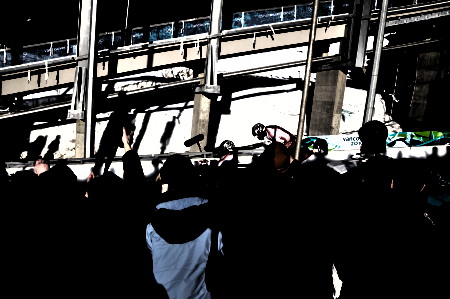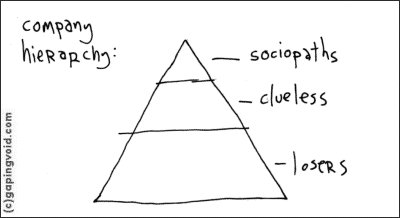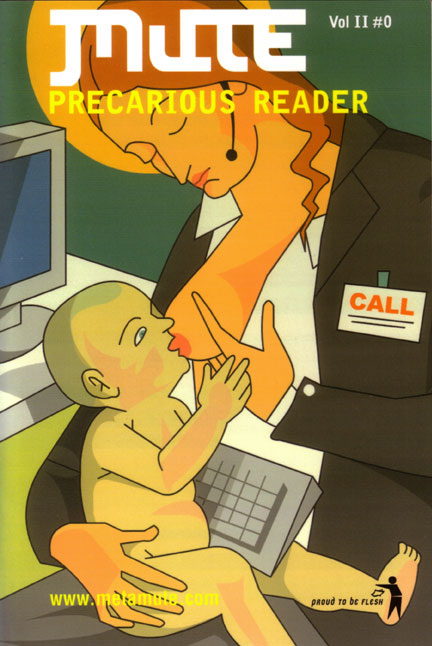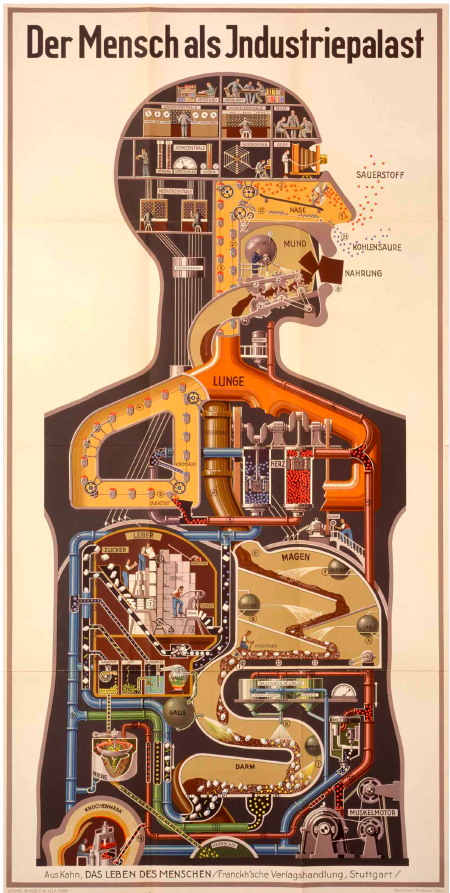Posts Tagged ‘cognitive labour’
Friday, July 15th, 2011
had a bit of a revelation on the whole “free” economy. it can work in specific cases but the reality is that here/now, things aren’t set up to be able to handle free. energetically or otherwise. so the very idea of “free” here… if it’s expected and ends up draining people in the process is a type of vampirism of sorts. thats a strong word… but we need fair exchange, not people greedy sucking at an all you can eat menu. if we where balanced, then its a different story. it should be free. we know deep down that it should be. but we’re here, and things aren’t balance. and that’s where we’re at, so free a lot of the times can be feeding the greed economy, the suck them dry economy. when it comes to protecting the integrity of important knowledge, copyright is super important. [vynny]
Indeed, though copyright is super important only if it’s collectively enforceable, claimable by content creators, and modifiable. Getting paid is key, I’d say, not necessarily the archaic apparatus of copyright. What we need is protection from theft by megacorps. Copyright shouldn’t be about hoarding. Squatter’s laws in effect. If you don’t use it, it’s up for grabs—but not for corporate use. Though I’ve heard plenty of critiques of Creative Commons, I think it’s “share-alike” license is the best thing going.
Tags: capital, cognitive labour, copyright, creative commons, DMCA, precarity
Posted in alterglobalization, piracy, political theory | Comments Off on free vampirism
Wednesday, February 24th, 2010
Compared to Turin, and even Beijing, the Vancouver 2010 Olympicon is perhaps the first major sporting spectacle to bear witness to the rise in social media. Compared to the ’90s advent of Indymedia, social media is a very different beast. Indymedia came about as the convergence of traditional alternative media (such as college & campus radio, ‘zines, underground newspapers and pamphlets) with emerging internet technologies of self-publishing. When Indymedia saw its first introduction at APEC in 1997, going on to become a full-fledged, independently developed technical web platform for contributors with a centralized media hub at the Seattle ’99 WTO convergence, it provided effective coverage not only because it aired the footage of, and granted time to, perspectives that mainstream network-based television was either unable or unwilling to provide, but because it did so from a concentration of independent, alternative journalists who, though they may have differed as to the precise orientation of their political convictions, all agreed upon the common need for an alternative media network to represent the unheard side of the story.

cameras out as the spectacle slides by. photo: tobias c. van Veen
(more…)
Tags: cognitive labour, precarity, protest, social media
Posted in alterglobalization, here & now, political theory | 31 Comments »
Monday, January 11th, 2010

the pyramid of corporate cognitive labour
I recently came across a rather awesome analysis on Ribbonfarm that adds some much-needed complexity to the basic dichotomy between vertical and horizontal models of corporate control. These fantastic and well-writ posts (The Gervais Principle I and II) have been hit up on Slashdot and have circulated far & wide for good reason. Like Christian Marazzi’s work that deftly summarizes the significance of language to capital – the way language informs the fluctuations of the stock market and global economy (see Capital and Language) – Venkat analyses the way in which language is ab/used by particular players in corporate organisations. He deploys his deft analysis to unravel bureaucratic power principles as well as propose a theory of microclass. And he accomplishes this all by taking as his primary example the hit TV series The Office — Ricky Gervais’ brilliant satire of water cooler politics and management mediocrity. Venkat’s analysis, informed by his research into theories of corporate management, complements Marazzi’s observation that
In the post-Fordist context, in which language has become in every respect an instrument of the production of commodities and, therefore, the material condition of our very lives, the loss of the ability to speak, of the “language capacity,” means the loss of belonging in the world as such, the loss of what “communifies” the many who constitute the community. (Marazzi, Capital and Language: 131).
(more…)
Tags: anthronomics, cognitive labour, disappearance, exodus, general intellect, Marazzi, precarity
Posted in autonomia, political theory | 14 Comments »
Wednesday, January 6th, 2010

- the way in which anthronomics circulates -
As part of my recent research into the mechanics of dismissal – the ways in which dismissals operate as the modus operandi of precarious labour – I asked around the Facebook network for stories of gettin’ fired. And I was surprised by the response; a good number of friends & colleagues had at one time been ‘dismissed’ from their jobs. Their stories are self-explanatory. It would appear that in most cases, the managerial class deploys dismissal as a means to cover-up structural incompetence. In quite a few cases, employees were misled into short-term hirings; dismissal is an easy way to ignore labour law that protects employee rights.
(more…)
Tags: anthronomics, cognitive labour, copyright, precarity
Posted in autonomia, philosophy, political theory | 4 Comments »
Tuesday, December 29th, 2009

Google gives me this image when searching for 'wage slavery' //
A few days ago I was throwing down some conversation in a noisy bar with a colleague (and friend) whom I hadn’t seen in awhile. Besides being able to only interpret every fourth word or so due to a completely distracting mashup mix blaring on the system whilst downing a good number of beers, the question came up as to what I was reading, and I showed TH a copy of Precarious Rhapsody by Franco “Bifo” Berardi — a work of autonomist theory from the Italian camp. The reason I was reading this, I explained, was because it engaged me, enraptured me, and for good reason — every line appeared as a reflection of my own fractured experience, not only in the past year working the shop floor, but in my life of working within realms aptly described under the banner of cognitive labour. I had gone from being a wordsmith and arts worker to a member of the shop floor precariat, in short from one precarious realm to another, from a realm where 110% of the brain is owned (insofar as one’s future cognitive production is pre-owned) to a position in which the brain is not only disowned, but actively discouraged in its use, with the menial task of one’s labour, however useless or counterproductive, the only toil to be done. While working the shop floor, I also observed the incredible ineptitude of business management, as it sweated the small stuff, missed the bigger picture, accepted mediocrity from itself while demanding 24/7 availability from the minimum wagers. In short, working the floor demonstrated quite precisely the management-induced toxic atmosphere of insecurity, resulting in seasonal turnover, inexperienced decision-making, and overall bad biz.
(more…)
Tags: anthronomics, Berardi, capital, cognitive labour, precarity
Posted in autonomia, philosophy, political theory | 9 Comments »
Tuesday, December 15th, 2009

truth in irony – whether beat down or beaten entirely / g20 protests, london
Since there are no remaining visible alternatives to universal pan-capitalism there seems to be no need for payoffs for the disenchanted, no necessity to bribe dissenting segments of the population and no incentives to grant extensions of freedoms. Instead of peddling hope and the vision of a mutually shared commonwealth, authority is maintained by synthetic fear and the need to secure property against some other. (“Synthetic Fear,” Konrad Becker, in Strategic Reality Dictionary: 144).
What is an anthronomics? Anthronomics would come to consist of embedded analysis. But literally: sleep with the enemy. Living the precarious wage as anthropology of the precariat. And plumbing the depths of the employer (or lack thereof). As a -nomics, a study of laws, it is yet a side-step from an economics which sees laws as relations of production, trade, and money, or in general of eco– principalities that become increasingly removed from affective conditions of collective bodies. An anthronomics puts the body back into the equation of economics, as well as the embedded status of its investigator, and like cultural ethnography, seeks to think through by thinking among.
(more…)
Tags: anthronomics, capital, cognitive labour, fear, Foucault, precarity, protest, Virno
Posted in philosophy, political theory | 3 Comments »
Monday, December 14th, 2009

"Precarious" issue of MUTE (Vol.2 #0)
What are the characteristics of the precariat? When one outlines the precarious class it is often by way of emphasizing the importance of cognitive labour. But sometimes discussions of cognitive labour (or what is known, somewhat incorrectly, as “immaterial labour”) glance over what Brian Holmes calls “the flexible personality.” As Holmes writes of his essay (originally published in 2001), the world has now commenced the
full implementation of the flexible employment system, that is, of a labor regime in which worker mobility and variable hours are accompanied by continuous electronic surveillance and the managerial analysis of performance. (Holmes, Flexible Personality)
(more…)
Tags: anthronomics, cognitive labour, general intellect, precarity
Posted in alterglobalization, political theory | 9 Comments »
Wednesday, December 9th, 2009
So that’s the way we live our lives. No matter how deep and fatal the loss, no matter how important the thing that’s stolen from us – that’s snatched right out of our hands – even if we are left completely changed, with only the outer layer of skin from before, we continue to play out our lives this way, in silence. We draw ever nearer to the end of our allotted span of time, bidding it farewell as it trails off behind. Repeating, often adroitly, the endless deeds of the everyday. Leaving behind a feeling of immeasurable emptiness. (Murukami, Sputnik Sweeheart 207)
…and in the Norwegian night sky, a spiral, lighting the heavens for over two minutes, what is this strange sight…

"the mysterious lysfenomen"
What gains greater notice — this spiral or the infelicities of Tiger Woods? The media attention is resolutely focused on the AfroAmerican groin as usual; the strangeness of the night sky passes us unnoticed. Perhaps because it gestures not toward what we already know – that Tiger, like 99% of us, thinks the confines of marriage a sham, and that human life be too short to not divest it among many – but toward what we don’t know. This light, the sky, these are unassimilable objects. Though reported and noticed as they do not escape all perception (that which does passes us by without a trace — perhaps), such events constitute a counter-event. A slip within symbolic systems. Such slips make possible all kinds of escapes and exit strategies.
(more…)
Tags: Antonioni, cognitive labour, disappearance, Murukami, precarity
Posted in alterglobalization, philosophy, political theory | 3 Comments »
Wednesday, November 25th, 2009

find someone to hold hands with: remember this
Not posting here registers a kind of disappearance. Where have I gone? Am I working? What constitutes labour when it is non-present? Is a life unrecorded in the 21C a life lived? Does not the precariat, the precarious immaterial class, take as much time archiving as doing? What precisely is the measure of this distance between doing and recording, acting and archiving? A desire to be done with it, enough with it, competes against the same urge to document. We are all tourists now: tourists, becoming a tourist, was the first manifestation of pathological levels of documentation. All must be photographed, recorded; the lived experience is better — oh, but isn’t it — in the re-telling than the actuality. The banality of “postmodern” readings (and this remains the ugly legacy of postmodernism) celebrated the retelling over the actuality. What is the actuality? So easy to diss this concept of lived experience – but in the critical deconstruction of presence, what the imitators forgot was the actuality or lived experience of thinking without a master. Actuality is living without a master. Writing is living too — but without a master. The only master being the master to take apart within the self (yes: this be alterity, otherness). Postmodernism found the easy-way out by generating endless critique of the lived plenitude instead of seeking its own experience thereof. Lived experience as the repetition of plenitude and suffering is the basis of anarchic living: organisation without mastery. And this concept has much more to do with the deconstruction of presence than the mere dialectical reversal of retelling over doing.
(more…)
Tags: cognitive labour, Coming Insurrection, disappearance, Marazzi
Posted in autonomia, philosophy, political theory | 3 Comments »
Monday, August 17th, 2009

cognitive labour, the human machine.
While I am often taken by the Italian Autonomist readings of general intellect in Marx (from the Grundrisse) the concept of locating ‘fixed capital’ not in machines but in the body of living labour can be challenging to pinpoint on a concrete level. The concept of general intellect, as it becomes what is called “cognitive labour,” is precisely that of the commodification, consumption and conscription of the living concrete today: the subject, in her body, and her cognitive power.
With a machine, the investment of capital in an object can be readily grasped. Capital is invested in a machine that generates, through its production, more capital. Voila, this be fixed capital. And to invent a machine, one needs ‘general intellect’, which is to say, science (in the general sense: the knowledge of making X). A machine comes about through the production of a technical knowledge and science. Fixed capital relies upon the production of such knowledge (its invention & dissemination; which leads to an inherent argument for the freedom of information while at the same time providing the condition for information to become a commodity under copyright – but I digress). Thus general intellect is fixed, as in materialized by way of capital, in the machine.
(more…)
Tags: cognitive labour, general intellect, Marazzi, Negri, Virno
Posted in autonomia, philosophy, political theory | 5 Comments »














 RT
RT 